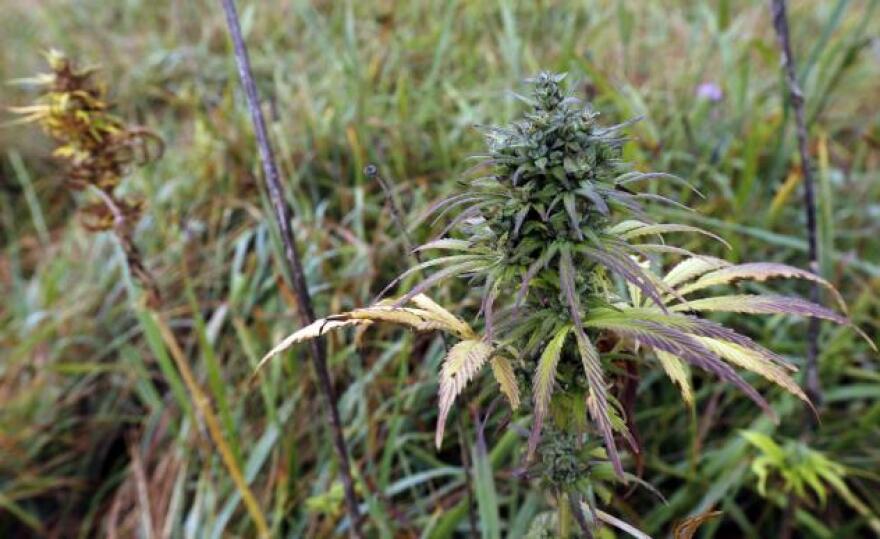Recreational pot stole the spotlight when it was legalized last summer, but a related plant has been quietly taking root since 2016: hemp.
Hemp is used to make products like cloth and CBD oil, the popular dispensary product that treats pain and anxiety but doesn’t get you high.
In 2014, Congress passed a farming act that opened the door for hemp production with one condition, farmers had to show they were researching something related to hemp or were developing something related to the plant.
Nevada and 35 other states now allow hemp farming.
Russ Wilhelm is the industrial hemp manager for Nevada. He said the state runs about in the middle when it comes to hemp production with about 130,000 square foot of production and 2,000 acres of that is being done outdoors.
Wilhelm said hemp falls into three main categories: fiber, grain and oil.
Adrienne Snow is the business development manager for Western States Hemp in Fallon.
She said there are two types of hemp plants. The first is industrial hemp, which grows taller and creates the long fibers that can be used for fabric, rope, paper and other industrial goods.
The second type is feminized varietals, which are high in CBD found in the leaves and flowers.
But neither of these plants have high levels of THC, which is the chemical that produces a psychoactive effect.
"Hemp plants by definition have to test at .3 or below of a percent [on THC levels],” Snow said.
She said the marijuana that people buy for recreational use have between 15 and 22 percent THC. Snow compared it to the difference between non-alcoholic beer and normal beer.
Joe Frey is the owner of Western States Hemp. His family has been farming in the Fallon area for more than 100 years. He's grown everything from alfalfa to cantaloupes.
Now, he's growing about 40 acres of hemp in Fallon and another 60 to 70 acres of hemp scattered around the rest of the state.
“From a distance, it would look just like a corn crop or an alfalfa crop growing in the field under the circle irrigation,” he said.
Frey said he has seen a change in scale of the hemp farms and a change in the attitude toward the crop that was once illegal to grow.
And right now, demand is outstripping production.
“I would say we have far less product than what there is demand for on the market right now,” he said.
And as dictated by law, Frey and Snow are working on research as they farm hemp.
Snow is working with researchers at the University of Nevada, Reno to feed livestock hemp.
"The benefit we're looking at in feeding hemp to these animals is that it has a very nutritionally complete profile," she said, "It is extremely high in omega-3. It is extremely high in protein."
Snow and the UNR researchers will be feeding hemp to chickens to see the impact it has on egg production and fatty acid output.
The hemp industry in Nevada and across the country could get an even bigger boost if a provision in the current farm bill being discussed in Washington, D.C. right now goes ahead.
Wilhelm said if the bill passes with its current language intact it would change the hemp industry dramatically.
“What it will do for the entire nation is actually commercialize the industry, which will actually bring a lot more federal entities who have been hands-off with industrial hemp in years past it will actually force them to take the reigns and be involved in industrial hemp,” he said.
Wilhelm said that would mean the Environmental Protection Agency would have to get involved with pesticide and environmental impact reviews.
The Food and Drug Administration would have to review drug programs related to the CBD oil and dietary supplement products made from the plant.
And perhaps most importantly, the Drug Enforcement Agency would back off and stop enforcing regulations against the plant as a Schedule One drug.
Russ Wilhelm, industrial hemp manager, State of Nevada; Joe Frey, owner, Western States Hemp; Adrienne Snow, business development manager, Western States Hemp









